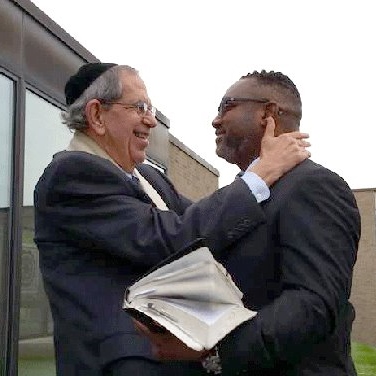
News

Black South Africans’ aren’t fazed by Jews
STEVEN KRAWITZ
Human Rights Day was an appropriate day to launch a report on how black South Africans feel about Jews, said Tali Nates of the Holocaust and Genocide Centre of the “Attitudes and Perceptions of Black South Africans towards Jewish People” report. A carefully selected panel presented and discussed the findings of this UCT Kaplan Centre Report.
Adam Mendelsohn, director of the Kaplan Centre, explained that over the past few years, influential black South Africans had expressed classical anti-Semitic sentiments. Think of Wits University student leader Mcebo Dlamini.
Jewish academics and leaders were unable to say if these inflammatory remarks were the isolated, personal thoughts of individuals, that would not gain traction and fade away, or whether they were widely-held ill feelings towards Jews, that could tip into wide-spread anti-Semitism and endanger Jewish life in South Africa. This study was commissioned to fill in the gaps.
Black South Africans in three cities, Johannesburg, Cape Town and Durban, were surveyed. Among the main findings were that there is very little interaction between Jews and black South Africans, with only 37 per cent of respondents able to categorically state that they had interacted with a Jew.
There is also very little awareness of the Jewish community and Jewish issues.
Members of the Jewish community were perceived to be the least important players and the least influence in business, media, political affairs and civil society.
Only 10 per cent of respondents feel that Jews have too much power in the business world, very little [I21] influence in politics or the media.
As many as 82 per cent responded that they do not associate Jews with apartheid and only 2 per cent associated Jews as opposing apartheid; 72 per cent responded that they are not aware of the conflict between Israel and Palestine and only 4 per cent showed a depth of understanding of the conflict. Only 7 per cent felt that Jews currently work towards poverty alleviation.
Mendelsohn pointed out that there are significant mismatches between, firstly, the proud historical narrative of the Jewish community’s struggle against apartheid and black people’s knowledge of the role of Jews in the Struggle.
Another mismatch was the current Jewish efforts at poverty alleviation and black people’s awareness of our efforts at uplifting and improving lives.
Also, it was uncanny that despite the intense anti-Israel coverage of the Israel/Palestinian conflict in the media and on university campuses, most black South Africans had a broad indifference towards that conflict.
Mendelsohn added that these results were dispiriting if the Jewish community wants recognition for their role in building South Africa. However, if the community’s goal is to combat anti-Semitism, these findings are actually positive.
Deborah Posel, another panellist, pointed out that on balance there is very little for South African Jewry to worry about. The lack of contact with and awareness of Jews, makes sense when considering that South Africa has a population of 55 million and a Jewish community of around 50 000 – around 0,1 per cent of the population.
What Posel wanted to focus on was a finding that when asked what they associate with the word “Jew”, 20 per cent of respondents made negative associations, for example, “greedy”, “selfish” or “racist”.
Drawing on an international survey conducted by the Anti-Defamation League, Posel mentioned that globally anti-Semitism is based on a number of attitudes largely absent in South Africa.
These are that Jews are more loyal to Israel than the land they live in (only 10 per cent of South African respondents felt that Jews were the least loyal segment of South Africa’s population); that Jews exercise power over business and finance; that Jews exercise power over world affairs and the American Government; and that Jews look after their own.
Posel posed the question that with so few classical anti-Semitic attitudes present in South Africa, what is the reason for 20 per cent of respondents making negative associations to Jews?
Mendelsohn responded that he believes that the negative associations are weak, can be read in different ways and could be stereotypes ingrained in Christian texts and beliefs. He also added that 44 per cent of respondents had difficulty differentiating between Jews and Muslims.
Phumlani Majozi, a business analyst and commentator, another panellist, joked that he first met a Jew in his honours class at UCT, providing anecdotal support for the survey’s findings.
Panellists and the audience felt that future surveys should focus on “thought leaders” and university students – the two groups under-represented in the broad sample of respondents in this survey.
However, these groups are very vocal about the situation in Israel. There was a strong sense that Jewish philanthropic initiatives, of which there are many, should be publicised much more widely, to raise awareness of South African Jewry within the wider public.
- The launch was held under the auspices of Limmud South Africa at the Holocaust and Genocide Centre.




